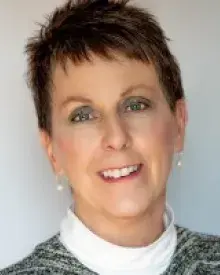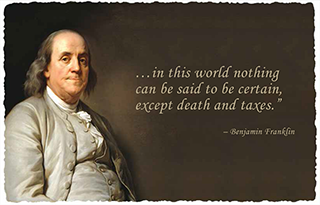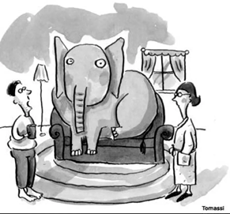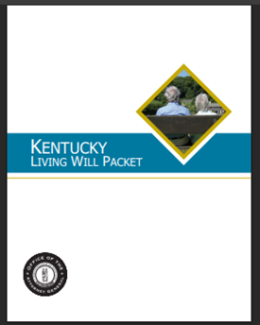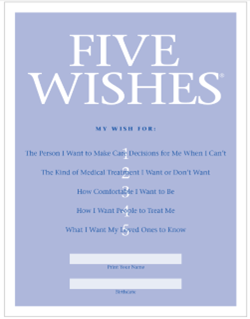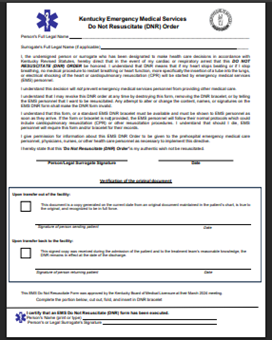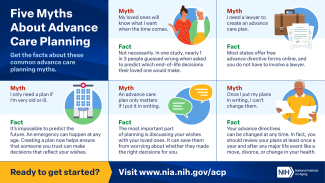April is National Healthcare Decisions Month
April is National Healthcare Decisions Month with April 16 the designated day to bring awareness and encourage individuals of all ages to complete their advance directive for healthcare. Why April 16 you may ask? This date was intentionally selected as it is the day after the deadline to file tax returns.
NHDD was founded in 2008 by attorney Nathan Kottkamp to provide clear, concise, and consistent information on values-based, healthcare decision-making for individuals, healthcare providers/facilities and community leaders through the widespread availability and dissemination of simple, free, and uniform tools (not just forms) to guide the process.
Watch the NHDD Speak Up Video here: https://vimeo.com/36052824
Discussing End-of-Life Decisions | The Elephant in the Room…
An important or enormous topic, question, or controversial issue that is obvious or that everyone knows about, but no one mentions or wants to discuss because it makes some of them uncomfortable. A situation where a major issue is so clear that it is impossible to ignore, yet people choose not to address it directly.
Kentucky MOST Coalition: https://www.kymost.org/
Much of life is shaped by the choices we make about our well-being and how we care for ourselves. When it comes to medical care and treatment, most people feel better when they participate in these decisions.
Making decisions as you wish is an empowering statement to others that what you want is most important. This is especially true when it comes to the health care you receive. Wishes are personal and extremely important, but they need to be known to be honored.
Creating an Advance Directive requires thoughtful consideration. It is part of a process that involves thinking about your values and goals for medical care and talking with those who are close to you about how you want to live during serious illness. The sooner you begin planning, the sooner you and your loved ones will have a clear understanding of what you want.
The most important thing to remember is that as difficult as this conversation may be, it would be even more difficult for our loved ones to make those decisions for us without knowing what we would and would not have wanted.
Know Your Advance Directive Forms
https://www.ag.ky.gov/AG%20Publications/livingwillpacket.pdf
Kentucky Living Will allows you to leave instructions in four critical areas. You can:
- Designate a Health Care Surrogate
- Refuse or request life prolonging treatment
- Refuse or request artificial feeding or hydration (tube feeding)
- Express your wishes regarding organ donation
https://kbml.ky.gov/board/Documents/MOST%20Form.pdf
Kentucky MOST form gives patients with life-limiting diseases the ability to state their own preferences for medical care if they become unable to communicate. The Kentucky MOST form is a document that is transferable among health care settings and enhances communication among health care professionals with the patient at the center. It is voluntary and is not biased for or against treatment.
https://agingwithdignity.org/five-wishes/
Five Wishes is an easy-to-use legal advance directive document written in everyday language. It helps all adults, regardless of age or health, to consider and document how they want to be cared for at the end of life. Five Wishes is unique among all other living will and healthcare agent forms because it speaks to the whole person's needs: medical, personal, emotional and spiritual. Five Wishes also helps to guide and structure discussions with your family and physician, making conversations easier.
https://kbems.ky.gov/About/Forms/DNR_Form_no_notary_no_witnesses.pdf
Kentucky Do Not Resuscitate (DNR) states that an individual does not wish to be resuscitated in the event that they experience cardiac arrest or respiratory failure. It is typically used by a person suffering from a terminal illness or serious medical condition that would worsen with the administration of CPR.
Resources provided by the NIH National Institute on Aging (NIA)
Worksheet: Thinking about what matters most when making medical decisions
Reflecting on your values is often the first step in advance care planning. Use this worksheet to think about what matters most to you and how that may affect the kind of medical care you would want. You can pick and choose which questions to review or discuss with your loved ones.
Worksheet: Care and treatment decisions: What would you choose?
Preparing for your care in advance can help you and your loved ones feel more prepared during a medical emergency or at the end of life. Think through these scenarios and the decisions you would make about your care and treatment. Write down your thoughts or discuss with loved ones.
https://www.nia.nih.gov/sites/default/files/2023-08/care-treatment-decisions-worksheet.pdf
Worksheet: Health care providers to involve in advance care planning
Advance care planning is covered by Medicare as part of your annual wellness visit. Use this worksheet to determine which health care providers you would like to speak with about your advance care plan.
https://www.nia.nih.gov/sites/default/files/2023-08/health-care-Providers-involve-acp-worksheet.pdf
Worksheet: Tips for talking with your doctor about advance care planning
Talking to a health care provider can help you learn about your current health and the kinds of decisions that are likely to come up. Use the tips and conversation starters in this worksheet to help you discuss your advance care plan with a doctor.
https://www.nia.nih.gov/sites/default/files/2023-08/tips-talking-doctor-about-acp-worksheet.pdf
Worksheet: Who should I choose as my health care proxy?
A health care proxy is a person who can make health care decisions for you if you are unable to communicate these yourself. Use this worksheet to help you consider who might be a good fit to act as your health care proxy.
https://www.nia.nih.gov/sites/default/files/2023-08/choose-health-care-proxy-worksheet.pdf

